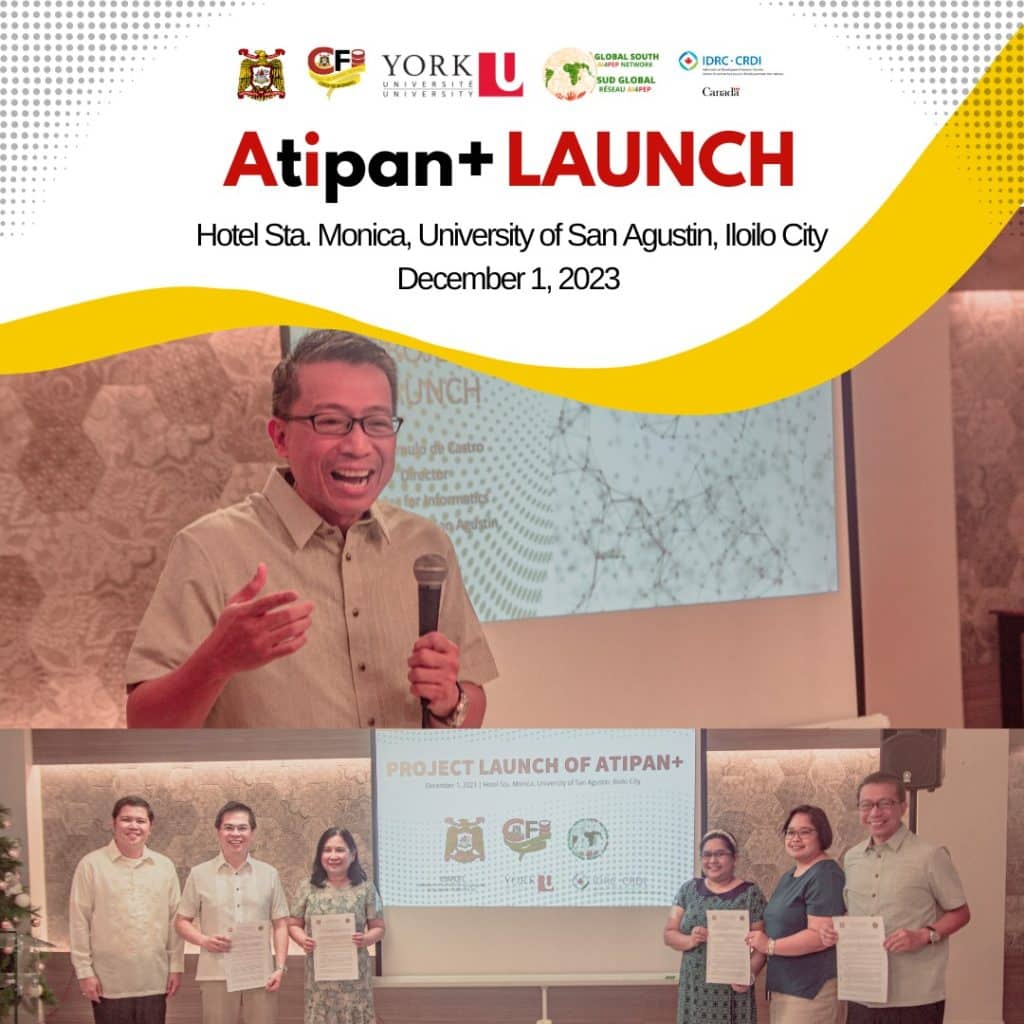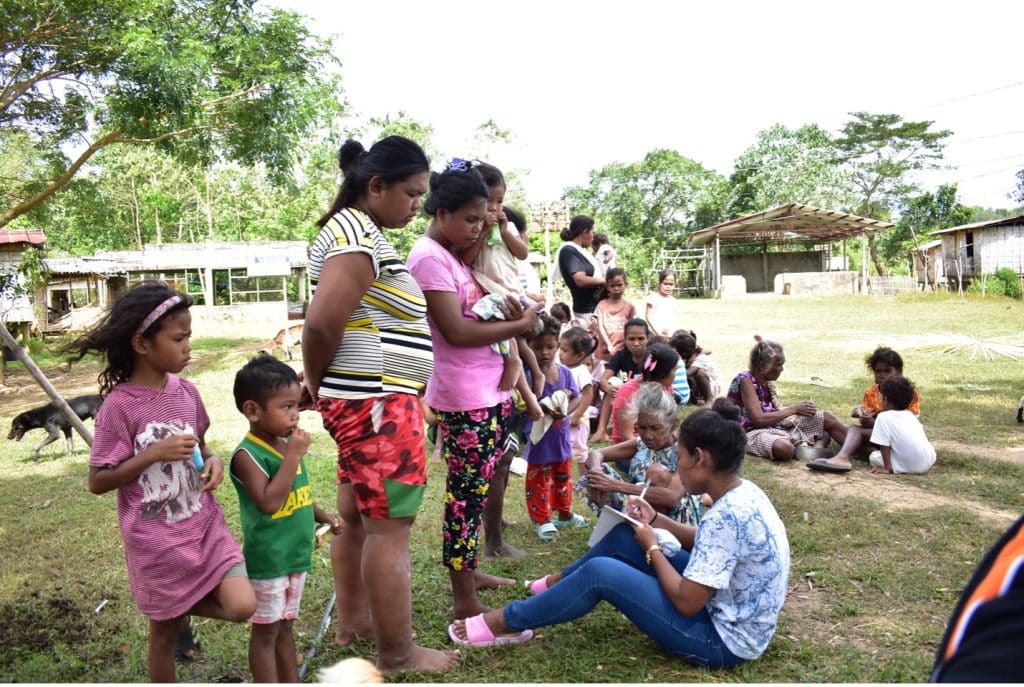
The Center for Informatics (CFI) of the University of San Agustin (USA) recently launched its internationally-funded project on pandemic/epidemic preparedness and mental health titled,
“Telehealth data, predictions, pandemic prevention and preparation (TDP4): early resources mobilization and long-term mental health response in highly vulnerable Indigenous communities,” on December 1, 2023 at the Sta Monica Hotel on Jalandoni St., Iloilo City.
The event was attended by officials from the regional Department of Health (DOH) who are supporting and collaborating on the research project. The project utilizes telehealth data for health monitoring in vulnerable and underserved Indigenous communities in the region and predicts the mental health outcome of the next public health emergency, with concomitant modeling of the required resources needed to be mobilized to respond.
It is a collaborative project on Artificial Intelligence for Pandemic/Epidemic Preparedness (AI4PEP) funded by the International Development Research Centre (IDRC), an agency of the government of Canada, via York University (Toronto, Ontario, Canada) along with the university’s non-profit research arm, the Research and Development Foundation, Inc. (RDFI).
With this project, the CFI becomes a member of an international network of artificial intelligence (AI) practitioners for public health, the Global South AI4PEP Network, spanning Asia, Africa, the Middle East and South America. The network’s global project lead, Dr. Jude Kong, gave a virtual message of encouragement and excitement at the project’s launch.
Leaders and members of the Ati people attended the event and gave their perspectives on this new project as well as CFI’s previous telehealth project (ATIPAN: https://www.usacfi.net/atipan-project.html) in their communities.
Two international resource persons, from the University of Alberta in Canada who are collaborating on the project, attended the launch and gave their messages of enthusiasm for cutting edge research and its potential high and transformative impact on the health of highly vulnerable communities: Dr. Eleni Stroulia, Professor of Computing Science and an expert in Artifical Intelligence and Software Engineering, and Dr. Arto Ohinmaa, Professor of Public Health and an expert in Health Economics.
Two other international resource persons attended the launch and an earlier project meeting to share their perspectives in digitalizing mental health information from global and regional perspectives: Dr. Anil Thapliyal, the Executive Director of eMHIC (eMental Health International Collaborative) and Professor Andrew Greenshaw, a psychiatrist and faculty of the University of Alberta Canada and Scientific Director of the APEC Regional Hub on Mental Health.
There was a ceremonial signing of the Memorandum of Understanding (MOU) between Dr. Adriano Suba-an, the DOH Regional Director, and University of San Agustin’s president, Fr. Frederick Comendador, to kick-start research collaborations for “the generation of data/evidence for health policy setting and scientific and technological innovation in healthcare specifically in mental health, cardiovascular diseases, diabetes, infectious diseases, health data interoperability, digital health and telehealth, data science, machine learning and artificial intelligence, community engagement and Indigenous health.”
-3-
Related story:


